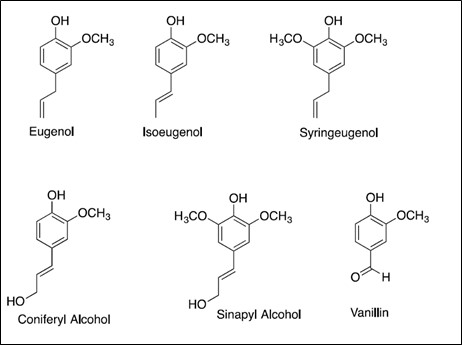Bio-Based Monomers for Polymers and Plastics (RFT-478)
Invention Summary
Scientists at NDSU have developed bio-based monomers, derived from lignin or cellulose, that have promise for high-quality polymers and plastics. Use of lignin is made more reliable and less expensive by using the diverse core compounds that are intermixed in lignin polymers in whatever combinations and ratios they are found. These compounds can be disassembled to form a pool of monomers, which are then modified en masse to form dicarboxylic acid derivatives, and then polymerized again to form linear polymers with surprisingly consistent and predictable properties. Several valuable end products obtained from cellulose, are derived from hydroxymethylfurfural (HMF). These include many di-alcohols, di-carboxylic acids, and diamines. These monomers can be polymerized using standard Perkin condensation and other widely used chemical processes. They may be used individually or together to produce polyesters and polyamides using the same types of processes and facilities that are currently used for production of PET and other petroleum-based polymers.


Benefits
- Can utilize any biomass source, including wood, other cellulosic biomass, and plant oils, to synthesize monomers.
- Provide value-added commercial paths for lignin and other "waste" materials derived from biomass processing.
- Bio-based monomers are similar enough to terephthalic acid that the same polymer chemistry and equipment as used in producing petroleum-based industrial polymers and copolymers can be used to produce bio-based polymers and co-polymers
Patents
This technology is the subject of the Issued US Patent 10,513,482 and 11,220,475 and is available for licensing/partnering opportunities.
Contact
NDSU Research Foundation
info(at)ndsurf(dot)org
(701)231-8173
NDSURF Tech Key
RFT, 478, RFT478
Inquire about this technology >